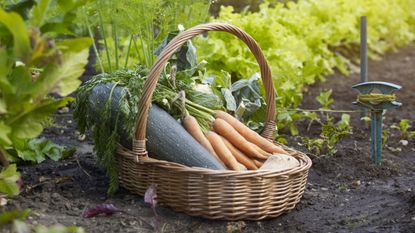Elevate Your Pepper Garden: The Best Fertilizers For Peppers You Need
Wiki Article
Revitalize Your Pepper Garden: Uncovering the very best Plant Foods for Durable Plants and Plentiful Harvests
Discover the best plant foods for robust plants and bountiful harvests. Boost your pepper plants' health and growth with organic, slow-release, and nutrient-rich fertilizers.Organic Plant Foods for Peppers
When it comes to nourishing your pepper plants, natural plant foods supply countless benefits. Unlike artificial plant foods, organic options are derived from natural sources and provide a slow-release of nutrients, ensuring a consistent supply of essential components for your plants. These plant foods are abundant in organic matter, such as manure, bone, and garden compost dish, which not just nourish your plants but also add to the total wellness of the soil.
Slow-Release Fertilizers for Maximum Development

One of the major benefits of using slow-release fertilizers is their convenience. Unlike standard plant foods that require constant applications, slow-release fertilizers just require to be applied once or two times during the growing period. This conserves you time and initiative, allowing you to focus on various other facets of your yard. In addition, slow-release fertilizers are a lot more eco pleasant as they decrease the threat of nutrient overflow right into water resources.
When selecting a slow-release plant food for your pepper plants, look for one which contains a well balanced mix of important nutrients, such as potassium, phosphorus, and nitrogen. These nutrients are essential for advertising healthy and balanced development, strong origin growth, and abundant fruit production (best fertilizers for peppers). Additionally, consider the details requirements of your pepper plants, such as their liked pH degree or any particular micronutrients they may call for. By selecting the best slow-release fertilizer, you can guarantee your pepper plants have the needed nutrients for durable development and abundant harvests.
Nutrient-Rich Plant Foods for Ideal Plant Health
Pick a nutrient-rich plant food to make certain ideal health for your pepper plants. Giving your peppers with the appropriate equilibrium of nutrients is vital for their development and productivity. Search for fertilizers that contain an excellent mix of macronutrients such as nitrogen, phosphorus, and potassium, along with trace elements like iron, manganese, and zinc. These nutrients are essential for the total health and advancement of your pepper plants.Nitrogen is essential for advertising leafed growth, while phosphorus aids in root growth and blossom production. Potassium assists with general plant vitality and disease resistance. Trace elements play a crucial duty in different physical procedures, consisting of photosynthesis and enzyme activation.
When picking a nutrient-rich fertilizer, think about the details needs of your pepper plants. Different ranges might call for various nutrient proportions, so it is essential to read the tag and pick a fertilizer that matches their demands. In addition, natural fertilizers, such as compost or fish emulsion, can supply a slow-moving launch of nutrients and improve soil health in time.
Keep in mind to adhere to the advised application prices and regularity given by the plant food manufacturer. Over-fertilizing can lead to nutrient imbalances and can hurt your plants. Routinely monitoring your plants for indications of nutrient deficiencies or extras will help you adjust your fertilizer program appropriately.

Personalized Blended Fertilizers Tailored to Pepper Plant Kingdoms
To make certain optimum development and efficiency for your pepper plants, you ought to on a regular basis include personalized mixed fertilizers tailored specifically to their demands. These plant foods are developed to provide the accurate nutrients that pepper plants need for durable growth and abundant harvests. basics Customized blending allows you to create a fertilizer mix that fulfills the special demands of your pepper plants, thinking about aspects such as soil make-up, plant range, and growth phase.One secret advantage of customized mixed fertilizers is that you have control over the nutrition ratios. By personalized blending your fertilizers, you can readjust the nutrition proportions to match these altering requirements, ensuring that your pepper plants get the appropriate balance of nutrients throughout their growth cycle.
In addition, custom mixed plant foods permit you to attend to details soil deficiencies. If your soil is doing not have in specific trace elements like iron or zinc, you can include these components to your plant food mix to address the deficiency. This targeted technique makes certain that your pepper plants have access to all the vital nutrients they need for optimal growth and productivity.
Eco-Friendly Fertilizers for Sustainable Gardening
Accomplishing sustainability in your pepper garden is quickly obtainable by including environmentally friendly fertilizers that advertise environmental stewardship and lasting practicality. As a liable garden enthusiast, it is very important to choose plant foods that not just nurture your plants yet likewise reduce damage to the environment. Luckily, there are several eco-friendly alternatives readily available that can sustain your lasting horticulture methods.One popular option for green fertilizers is garden compost. Composting enables you to recycle natural waste, such as kitchen area scraps and backyard trimmings, right into nutrient-rich soil amendments. By using garden compost as a fertilizer, you are minimizing waste and enriching your dirt normally.
One more environment-friendly choice is organic plant foods. These fertilizers are made from natural resources, such as pet manure, bone meal, and fish solution. They offer necessary nutrients to your plants without making use of synthetic chemicals. Organic plant foods also improve dirt structure and advertise helpful microbial activity.
Moreover, you can consider utilizing seaweed-based plant foods. Seaweed is a lasting resource that gives plants with a variety of nutrients, consisting of trace, potassium, and nitrogen minerals. It also improves plant resilience to stress and anxiety, improves root development, and increases general plant vigor.

Verdict
So, if you desire to renew your pepper garden and guarantee durable plants and plentiful harvests, it's essential to select the best plant foods. Whether you decide for organic fertilizers, slow-release options, nutrient-rich formulas, or custom mixes tailored to pepper plants, there are lots of selections to fit your needs.Unlike typical fertilizers that call for regular applications, look at this website slow-release fertilizers only require to be used when or twice throughout the expanding period. By picking the right slow-release fertilizer, you can guarantee your pepper plants have the necessary nutrients for durable development and bountiful harvests.
These fertilizers are designed to give the specific nutrients that pepper plants require for durable growth and plentiful harvests. Custom-made mixing permits you to produce a fertilizer mix that satisfies the distinct requirements of your pepper plants, taking into consideration factors such as soil make-up, plant variety, and click here for info development stage.
By personalized blending your plant foods, you can change the nutrient ratios to match these changing demands, making sure that your pepper plants receive the ideal equilibrium of nutrients throughout their development cycle.
Report this wiki page